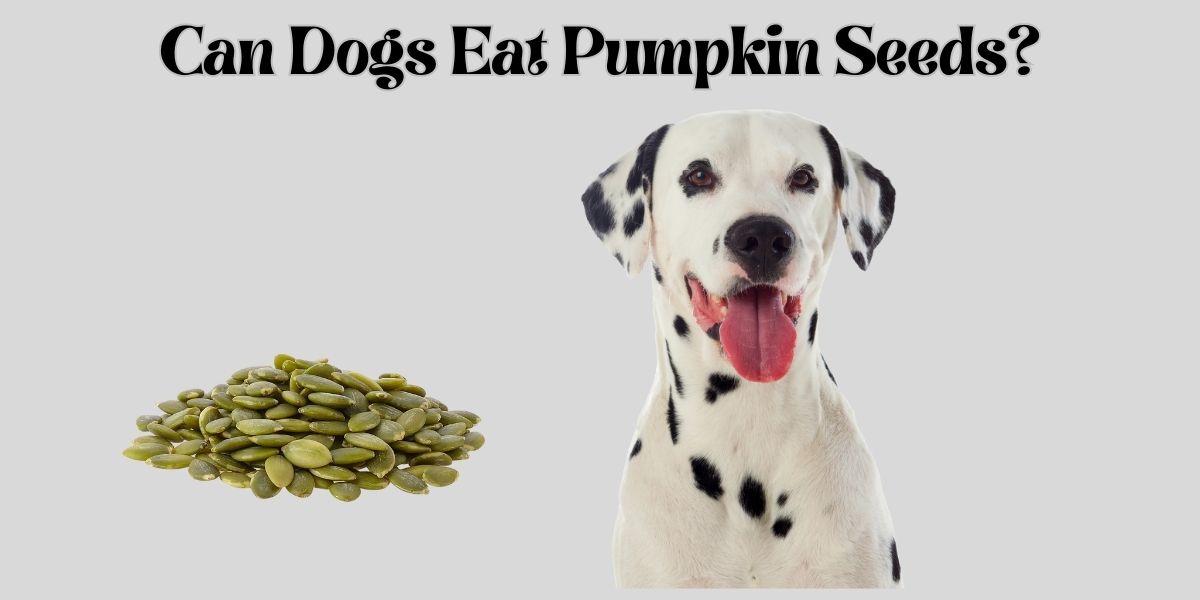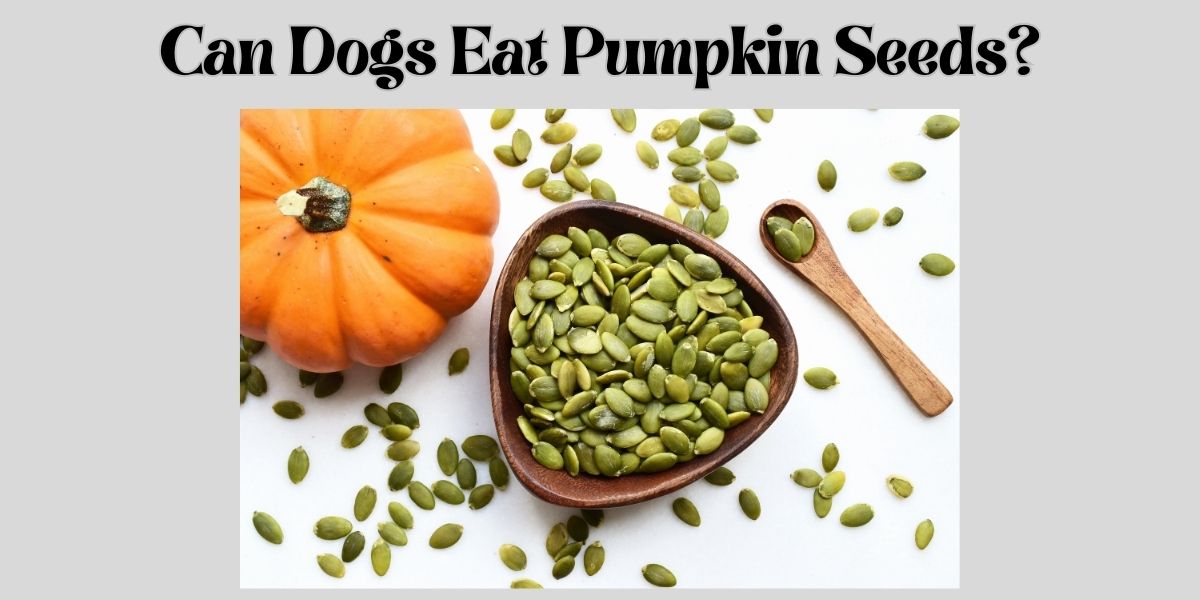Can Dogs Eat Pumpkin Seeds?

Have you ever wondered whether dogs can eat pumpkin seeds? Well, you’re in luck because we’re here to give you the lowdown on this tasty treat! While pumpkin flesh is safe and even beneficial for dogs to consume, the same cannot be said for pumpkin seeds. Although they may seem small and harmless, pumpkin seeds can actually pose potential health risks for our furry friends. So, before you go tossing them a handful of seeds, let’s explore why it’s best to keep pumpkin seeds off your pup’s menu.
Can Dogs Eat Pumpkin Seeds?
Nutritional Value of Pumpkin Seeds
Yes, dogs can eat pumpkin seeds! In fact, pumpkin seeds are not only safe for dogs to consume, but they also have a range of health benefits. Pumpkin seeds are another one of nature’s little powerhouses, packed with essential nutrients that can support your furry friend’s overall well-being.
When it comes to nutritional value, pumpkin seeds are a great source of protein, fiber, and healthy fats. They are also rich in various vitamins and minerals, including magnesium, iron, zinc, and vitamin K. These nutrients play a vital role in promoting your dog’s bone health, immune function, and energy levels.
Benefits of Pumpkin Seeds for Dogs
Feeding your dog pumpkin seeds can offer several benefits. Firstly, the high protein content in pumpkin seeds helps in muscle development and repair. This is particularly beneficial for active dogs or those recovering from an injury.
In addition, the fiber content of pumpkin seeds can support your dog’s digestive health. Fiber acts as a natural stool softener, preventing constipation and promoting regular bowel movements. It also aids in regulating blood sugar levels, which can be helpful for dogs with diabetes or weight management concerns.
Another noteworthy benefit of pumpkin seeds is their zinc content. Zinc is important for maintaining a healthy coat and skin in dogs. Regular consumption of pumpkin seeds can help prevent dry skin, itching, and improve the overall condition of your dog’s fur.

Potential Risks and Concerns
While pumpkin seeds are generally safe for dogs, there are a few precautions to keep in mind. One concern is the size and texture of the seeds. Pumpkin seeds are small and hard, making them a choking hazard, especially for small breed dogs or those prone to gulping their food. To avoid any mishaps, it’s best to grind or crush the seeds before feeding them to your furry friend.
Another potential issue is excessive consumption. Although pumpkin seeds offer numerous health benefits, moderation is key. Too many seeds can lead to an upset stomach, diarrhea, or even pancreatitis in some cases. Always remember to introduce any new food gradually and monitor your dog’s response.
Lastly, some dogs may have an allergic reaction to pumpkin seeds. If you notice any signs of itching, vomiting, or diarrhea after feeding pumpkin seeds, it’s best to discontinue their consumption and consult with your veterinarian.
Determining the Right Amount for Dogs
The appropriate amount of pumpkin seeds for your dog depends on various factors including their size, age, and overall health. As a general rule of thumb, it is recommended to offer pumpkin seeds as a treat or supplement, rather than a substantial part of your dog’s diet.
For small breed dogs, start with just a few seeds and observe how they tolerate it. Larger dogs can have a slightly larger serving size, but it’s still important to monitor their digestion and adjust accordingly. If you are unsure about the appropriate amount for your specific dog, consult with your veterinarian for personalized recommendations.

Tips for Feeding Pumpkin Seeds to Dogs
When feeding pumpkin seeds to your dog, it’s essential to take a few precautions. Firstly, always opt for raw, unsalted pumpkin seeds. Salted or roasted seeds often contain additives that can be harmful to dogs. Organic, unprocessed seeds are the best choice to ensure your dog receives the maximum benefits without any unwanted additives.
To make the seeds more palatable for your dog, consider grinding or crushing them into a powder-like consistency before serving. This also helps to reduce the risk of choking, especially for smaller dogs. You can mix the powdered seeds with your dog’s regular food or sprinkle them on top as a garnish.
Remember to introduce pumpkin seeds gradually into your dog’s diet to gauge their tolerance. Pay attention to any possible allergic reactions or digestive issues. If your dog does well with pumpkin seeds, you can continue offering them as a healthy and nutritious treat.
Preparing Pumpkin Seeds for Dogs
Preparing pumpkin seeds for your canine companion is a simple process. Start by scooping out the seeds from a fresh pumpkin. Rinse them thoroughly under cold water to remove any excess pulp or debris. You can also pat them dry with a paper towel if needed.
Next, you have the option to either roast or leave the seeds raw. If you choose to roast them, preheat your oven to 300°F (150°C). Spread the seeds evenly on a baking sheet and bake for about 10-15 minutes, or until they turn golden brown. Be sure to keep a close eye on them to prevent burning.
Allow the roasted seeds to cool completely before giving them to your dog. Alternatively, you can skip the roasting process altogether and offer the raw seeds as a crunchy treat. Remember to remove the shell of the seed before serving to your furry friend, as the outer shell can be tough to digest for dogs.

Alternatives to Pumpkin Seeds for Dogs
If for any reason your dog is unable to consume pumpkin seeds, there are several alternatives that offer similar health benefits. Chia seeds, flaxseeds, and sunflower seeds are all safe options for dogs. These seeds are packed with omega-3 fatty acids, fiber, and other essential nutrients that can support your dog’s overall health.
As with pumpkin seeds, it is important to introduce these alternatives gradually and monitor your dog’s tolerance and response. Be sure to adjust the serving size and always consult with your veterinarian if you have any concerns or questions.
Other Considerations
While pumpkin seeds are safe for most dogs, it’s important to remember that every dog is unique and may react differently to certain foods. Some dogs may have specific sensitivities or allergies that could make consuming pumpkin seeds problematic. It’s always best to observe your dog’s individual response and consult with your veterinarian if you have any concerns.
Additionally, it’s worth noting that pumpkin seeds should only be given to dogs as a treat or supplement. They should not replace a balanced and nutritionally complete diet. Ensure your dog’s primary food is specifically formulated for their breed, size, and age, and consult with your veterinarian for dietary recommendations tailored to your dog’s needs.
Consulting with a Veterinarian
If you have any questions or concerns about feeding pumpkin seeds to your dog, it’s always a good idea to consult with your veterinarian. They can provide personalized advice based on your dog’s specific needs and health conditions. Your veterinarian will also be able to guide you on the appropriate portion sizes and frequency of feeding pumpkin seeds to your furry friend.
Conclusion
In conclusion, pumpkin seeds are a safe and healthy treat for most dogs. They offer a range of nutritional benefits, from supporting muscle development to promoting a healthy coat and skin. However, it’s important to keep in mind factors such as serving size, potential risks, and individual sensitivities when introducing pumpkin seeds into your dog’s diet. Always consult with your veterinarian to ensure you’re making the best choices for your beloved canine companion. So go ahead, treat your furry friend to some pumpkin seed goodness, and watch them enjoy the many benefits these tiny seeds have to offer!